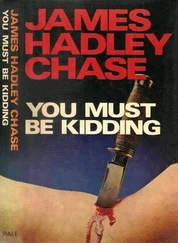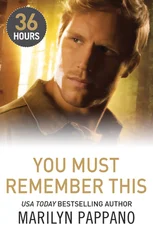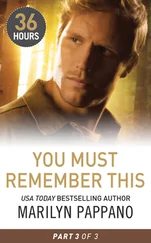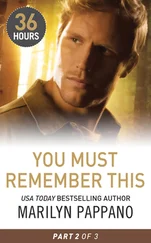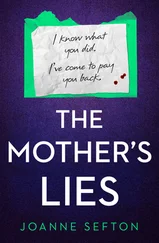No sense getting too excited. I popped the car back into drive and pressed the accelerator. Deucey stayed rooted in place. I pressed harder. The engine raced. My rear wheels spun. I felt the car sink.
I shoved the gearshift into park. I opened the driver’s door and looked down. Mud everywhere. And I was stuck in it, miles from nowhere.
I patted my jacket pocket and blew a breath of relief. I had my cell phone with me.
I flipped it open, checking for a signal.
No bars appeared on the display.
“Come on.” I tapped the phone against the dash. Still nothing.
Great.
At least I was parked in front of the only house for miles.
I stepped into the mud. My shoes made a sucking sound as I struggled around Deucey’s front end and over to the gate.
I looked down at my sneakers. Definitely ruined.
I scaled the gate, using the letter T for a foothold. I made it to the other side and set a fast pace for the residence I could only pray was somewhere down the road.
If the sun were shining in my eyes and birds were chirping around me, I could almost imagine I was back at the lake house up north. Mom and I spent summers there on the Silvan Peninsula. It was only an hour’s drive from our home in Escanaba. As soon as the snow melted, we’d drive out there and get the place ready for the season. Gram and Gramps had their own little cottage not too far away. We’d get together and do cookouts and swim in the bay.
But when Mom died, everything was sold. And Gram and Gramps bought the place in Walled Lake, about as far from the Silvan Peninsula as you could get. At least our new home had still been on the water. That helped make up for having to leave my friend Anne and my kitty Peanut Butter.
I crunched along the road, wishing I had a hat and scarf to guard against the chill. A gray, glassy surface shone through the trees ahead. I rounded a curve in the road and saw one of the many small lakes that dotted the area. On a bluff overlooking the shore sat a majestic log home. Leaves covered the path to the back door. Probably a sign that no one had been home for quite a while. I knocked anyway. Only the creak of trees answered. I checked the handle. Locked.
The clock on my cell phone read 1:50. I had plenty of time before dark. I could start walking home, and when my phone was back in range, I’d call for help. The temperature hovered right around thirty degrees these days, so I wasn’t in danger of freezing. Not for a while, anyway.
I headed up the hill back toward my car. I saw its glossy teal through the gates. Pulled next to it was a silver sports car.
I ran toward the vehicles, waving my arms. As I got closer, I stopped dead in my tracks.
David’s other car was a silver sports car.
I dove behind the nearest tree. I couldn’t believe it. David had gone back to the house, switched cars, then came out looking for me.
I took in the desolate forest all around. And what better place to dispose of my body?
Crouching on the ground in utter fear didn’t do much for my circulation. I started to shiver. I flipped open my cell phone again. Still no signal. And it looked like the battery wouldn’t last much longer in this cold.
I headed off into the woods, staying low, scurrying from bush to bush until I couldn’t see the cars anymore. Then I picked my way through the underbrush, hoping I was traveling somewhat parallel to the main road. I avoided the few patches of snow that lingered in the deep woods. All the exercise got my heart pumping. Everything but my ears felt toasty warm. I kept my hands in my jacket pockets along the way, playing with Rebecca’s fingernail as a motivator to keep moving.
Fifteen minutes or so later, I checked my cell phone again.
No signal and no battery. Looked like I was walking the rest of the way home.
I stayed in the woods until I came to the swamp. I had no choice but to cross on the narrow road. And once I was over, there were mostly open fields for the next several miles back to Rawlings.
About forty-five minutes had passed since I’d seen the sports car up at the gate. David would have figured out that I was nowhere around and left by now.
Still, I listened for sounds of traffic. I heard only the brush of the breeze against tree limbs.
I ventured onto the causeway. Pebbles scattered as I scurried toward the other side. Then out of nowhere, I heard crunching gravel and a revving engine. My heart lurched.
I threw a glance over my shoulder. David’s silver sports car was halted at the top of the rise, facing me and gunning its motor. And I was stuck on a ten-foot-wide strip of dirt surrounded by swamp.
Rocks flew behind the wheels as the vehicle blazed toward me.
I froze like a statue of a crazed gargoyle.
The car came at top speed. I could almost picture David smirking behind the tinted windshield.
Seconds before becoming roadkill, I flung myself over the wooden guard posts and into the swamp. The freezing water hit like a million needles piercing into my skin. I stood up in the knee-deep slime and gasped for breath.
I dragged my legs through the murky water toward the woods.
I glanced behind me. The sports car slid to a stop where the paved road began. The engine revved. Then the car sped off toward Rawlings.
My teeth chattered as I climbed out of the swamp and up the ridge. David didn’t need to stick around to make sure my body was floating in the swamp. He figured with a bath like that, I was as good as dead. Some hunter would find me next year, curled into a ball under a tree somewhere. And with my car parked up the road at the T gate, no one would even be suspicious.
And David would go around humming “Another One Bites the Dust.”
My body vibrated with cold. I could feel myself turning blue. I crossed the bridge again, safely this time, shivering in a slow jog. About a half mile south of the intersection, close to the road, sat a white farmhouse.
I set a goal to make it there alive.
Without trees to stop the wind, the cold cut through my clothes. I could barely feel my legs. They seemed to move by some power all their own. My clothing froze into a crusty shell. My lungs filled with molasses.
Not much farther. I was almost there. I couldn’t give up.
“Grandma, wake up and take your medicine.” I stood next to her bed at the Walled Lake house. Another morning, another round of pills. The woman would never die. I’d been caring for her two years already. The doctors had said six months at the most.
She groaned and opened her eyes. “Tisher, I don’t feel so good today.”
You haven’t felt good for two years, Gram, I wanted to say. “I know,” I said. “You’ll feel better after you take your pills.”
“I never feel better. I just want to die, Tishy.”
Then do it, already.
“I know, Gram. It’s hard.” I held her head up while she swallowed her prescriptions with a sip of water.
“Give me some more of those.” She pointed to her painkillers.
I moved the bottle behind a box of tissues on her bedside table. “Nope. It says one in the morning and one at night.”
“Give me one more. Then I can go back to sleep.”
“You’re not going back to sleep. Sit up. I’ll bring you a cup of coffee.” I propped some pillows behind her and went to the kitchen to make a fresh pot. I held back the tears as I thought about the letter I’d gotten the day before, a friendly reminder from the MSU financial aid department that my scholarship award expired that coming September if it remained unused.
Gee. Thanks for the update.
I brought Gram her coffee along with the morning paper and sat in the chair next to her bed.
“What terrible things happened yesterday, Tish?” she asked.
Читать дальше
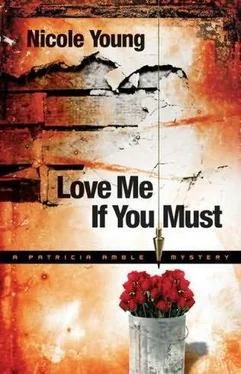

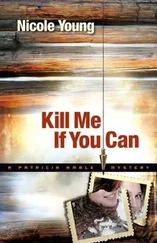
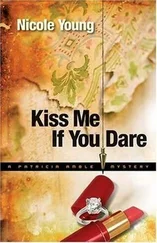
![Ally Carter - [Gallagher Girls 01] I'd Tell You I Love You But Then I'd Have to Kill You](/books/262179/ally-carter-gallagher-girls-01-i-d-tell-you-i-lo-thumb.webp)
